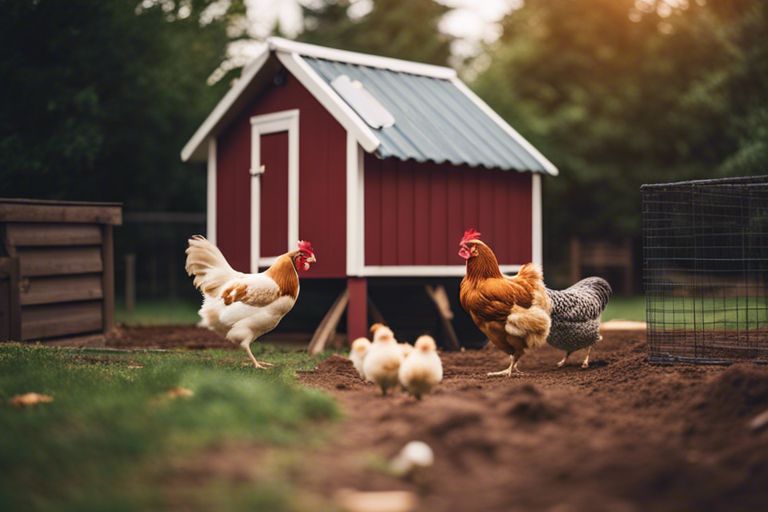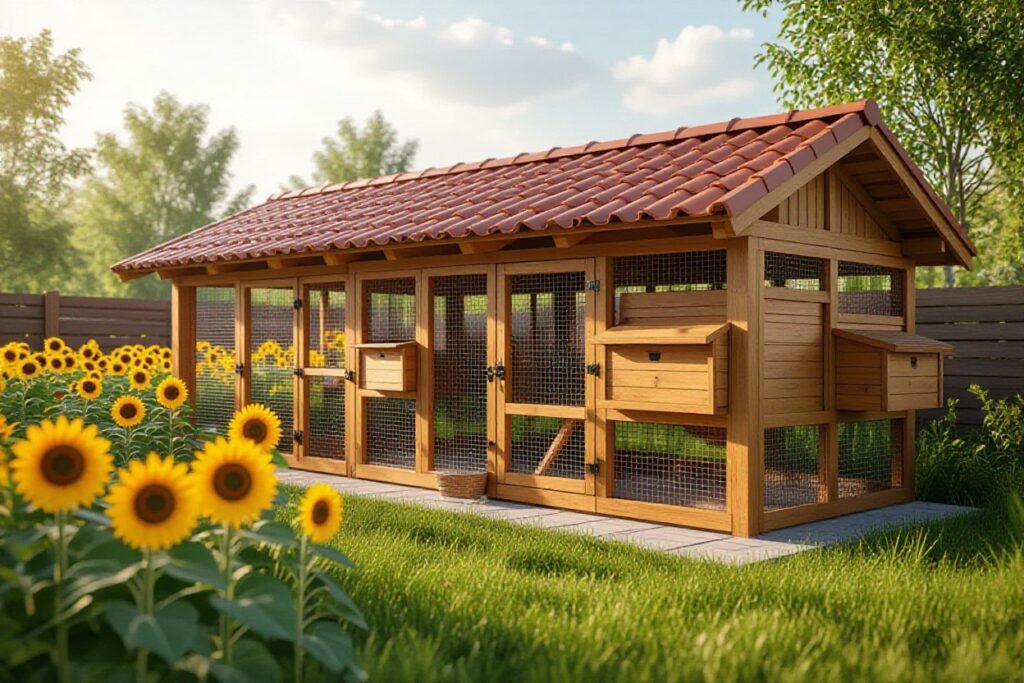Many aspiring homesteaders and backyard farmers find themselves drawn to the idea of keeping chickens for fresh eggs and natural pest control. If you’re new to the world of poultry keeping, this comprehensive guide will provide you with everything you need to know to successfully raise a happy and healthy flock. From selecting the right breed and setting up a coop to feeding, caring for, and even troubleshooting common issues, we’ve got you covered. Let’s dive in and get you started on your chicken-keeping journey!
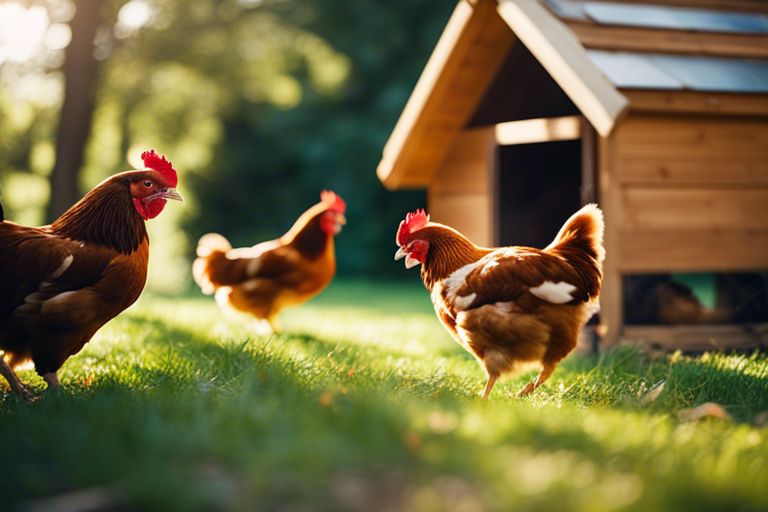
Choosing Your Chickens
Understanding Different Types of Chickens
A key step in selecting the right chickens for your flock is understanding the different breeds available. Chickens can be categorized into various types based on their purpose, such as egg-layers, meat birds, or dual-purpose breeds. Each type has its own unique characteristics in terms of egg production, size, temperament, and cold hardiness. This information can help you choose the chickens that best suit your needs.
| Egg-Layers | Known for their high egg production, they are great for those primarily interested in a fresh supply of eggs. |
| Meat Birds | These breeds grow quickly and are raised specifically for their meat production. |
| Dual-Purpose Breeds | These chickens are a combination of egg-layers and meat birds, offering both eggs and meat. |
| Bantams | Smaller in size, bantams are known for their ornamental value and are popular among hobbyists. |
| Exotic Breeds | These breeds often have unique features or historical significance, adding interest to your flock. |
Factors to Consider Before Selecting Your Flock
Before bringing home your feathered friends, there are some important factors to consider to ensure a successful chicken-keeping experience. Factors such as your location, space availability, local regulations, and personal preferences should all be taken into account. These considerations will help you make informed decisions and set up a suitable environment for your chickens.
- Consider the climate in your area and choose breeds that are well-suited to the temperatures and weather conditions.
- Assess the amount of space you have for your flock and ensure it meets the recommended guidelines for the number of chickens you plan to keep.
- Research any local regulations or restrictions on keeping chickens, such as zoning laws or homeowner association rules.
- Think about your goals for keeping chickens, whether it’s for eggs, meat, pest control, or simply as pets.
- Assume that regular cleaning, feeding, and healthcare will be necessary tasks to keep your chickens healthy and happy.
Preparing Your Space
Housing: Coop Essentials
Clearly, creating a safe and comfortable living space for your chickens is crucial to their well-being. When setting up your coop, ensure it is well-ventilated, predator-proof, and provides ample space for your flock to roost and lay eggs.
Safety: Predator Prevention Tips
Clearly, keeping your chickens safe from potential predators is a top priority for any responsible chicken owner. To prevent attacks from predators such as foxes, raccoons, and hawks, it’s important to install sturdy fencing, secure latches on doors and windows, and use motion-activated lights or sound deterrents.
- Regularly check for any gaps or weaknesses in your coop where predators could enter.
- Do not leave food scraps or open garbage near the coop as this can attract unwanted visitors.
With a few simple precautions, you can ensure your chickens have a safe and secure environment to thrive in. By following these predator prevention tips, you can enjoy peace of mind knowing that your feathered friends are well-protected.
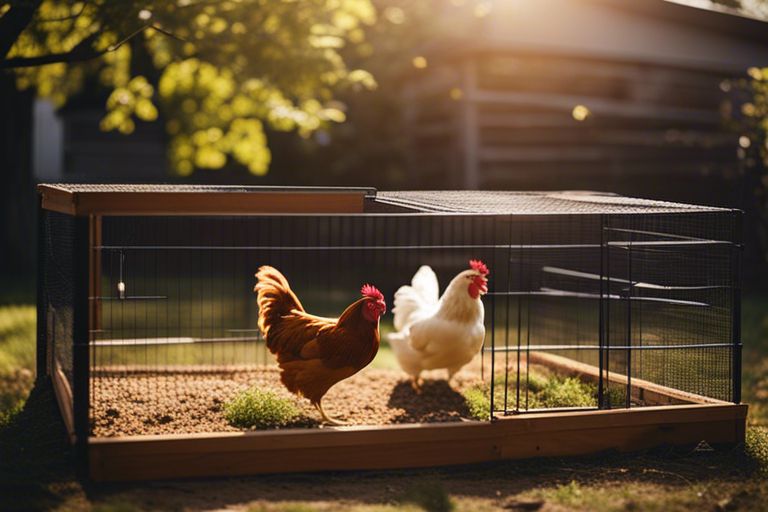
Daily Chicken Care
Many new chicken keepers are eager to begin caring for their feathered friends on a daily basis. Establishing a routine for feeding, watering, and checking on the health of the chickens is crucial for their well-being and productivity.
Step-by-Step Guide to Feeding and Watering
| Feeding | Watering |
| Provide a balanced diet of chicken feed containing the necessary nutrients for your chickens’ health. | Ensure there is always fresh, clean water available for your chickens throughout the day. |
| Offer occasional treats such as fruits and vegetables to keep your chickens happy. | Regularly clean water containers to prevent the growth of bacteria and algae. |
Health and Hygiene: Keeping Your Chickens Happy
If you want to ensure your chickens are healthy and happy, maintaining good hygiene in their coop and run is crucial. Regularly clean out the coop, replace bedding, and remove any soiled materials to prevent the buildup of harmful bacteria. Additionally, provide ample space for your chickens to roam and dust bathe, as this is crucial for their overall well-being.
If you notice any signs of illness in your chickens, such as lethargy, decreased egg production, or unusual behaviors, it is important to address the issue promptly. Consult a veterinarian who specializes in poultry to diagnose and treat any potential health problems your chickens may be experiencing.
Watering
Chickens require access to fresh, clean water at all times to stay hydrated and healthy. Make sure to check their water containers daily and refill as needed. In hot weather, chickens may consume more water, so it is crucial to monitor their water intake to prevent dehydration. Providing shade and cool areas for your chickens to rest can also help them stay comfortable and hydrated during hot summer months.
Common Challenges and Solutions
Pros and Cons of Various Breeds
To address the various challenges that come with keeping chickens, it’s necessary to understand the pros and cons of different breeds. By selecting the right breed for your specific needs and environment, you can set yourself up for a more successful chicken-keeping experience. Below is a breakdown of the advantages and disadvantages of some popular chicken breeds:
| Breed | Pros and Cons |
| 1. Rhode Island Red | Hardy and good egg layers, can be aggressive |
| 2. Leghorn | Excellent egg production, flighty and skittish |
| 3. Orpington | Friendly and docile, may go broody often |
Troubleshooting Typical Chicken Keeping Issues
To address common problems that may arise when keeping chickens, it’s important to be proactive and prepared. From dealing with pecking order issues to managing egg production fluctuations, understanding how to troubleshoot these typical chicken-keeping challenges is necessary for maintaining a healthy and happy flock.
Understanding the behaviors and needs of your chickens can help you identify and resolve issues effectively. By observing their interactions, monitoring their health, and providing a suitable living environment, you can tackle problems before they escalate and ensure a harmonious coexistence with your feathered friends.
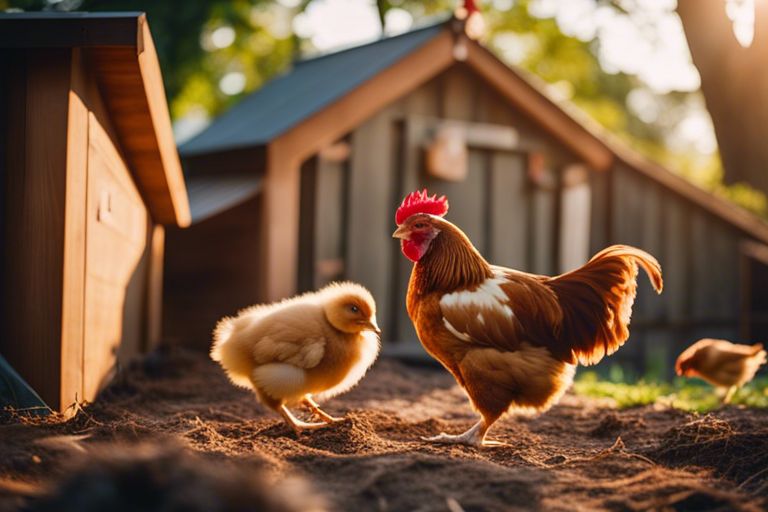
Expanding Your Knowledge
Unlike other pets, chickens have their own unique behaviors and needs that require specific knowledge to ensure their well-being. As you continue on your chicken-keeping journey, it’s imperative to expand your knowledge beyond the basics to become a more informed and capable chicken keeper.
Further Tips for Successful Chicken Keeping
- Regularly inspect your chickens for signs of illness or injury.
- Provide a balanced diet with access to fresh water at all times.
- Ensure your coop is well-ventilated and secure from predators.
Perceiving and addressing any issues promptly can help prevent potential problems and maintain a healthy flock.
Connecting with Chicken Keeping Communities
Little can compare to the value of connecting with other chicken keepers who share your passion and experience. By joining online forums, local groups, or attending poultry shows, you can tap into a wealth of knowledge and resources that can enhance your chicken-keeping skills.
Tips
Any enthusiast, whether a novice or experienced, can benefit from exchanging ideas, tips, and advice with like-minded individuals. Engaging with chicken keeping communities can provide a sense of camaraderie, support, and inspiration for your own flock management practices.
To wrap up
As a reminder, The Complete Beginner’s Guide To Keeping Chickens covers all the important information that anyone starting out with raising chickens needs to know. From setting up a coop, choosing the right breed, feeding and caring for your chickens, to troubleshooting common issues, this guide provides a comprehensive overview to help you successfully raise a happy and healthy flock. Keep in mind, starting with a solid foundation of knowledge and preparation will set you up for a rewarding experience as a chicken keeper. By following the guidelines and tips outlined in this guide, you’ll be well on your way to enjoying the benefits of keeping chickens in your backyard.
FAQ
Q: Why should I keep chickens?
A: Keeping chickens can provide you with a sustainable source of fresh eggs, natural insect control, and a fun hobby for the whole family.
Q: What are the basic requirements for keeping chickens?
A: Chickens need a secure coop for shelter, access to fresh water and food, enough space to roam and scratch, and protection from predators.
Q: How do I choose the right breed of chickens for my backyard?
A: Consider factors such as egg production, temperament, climate adaptability, and available space when choosing a breed of chicken for your backyard.
Q: What should I feed my chickens?
A: Chickens require a balanced diet that includes a mix of commercial feed, grains, fruits, vegetables, and access to grit for digestion.
Q: How do I keep my chickens healthy?
A: Regularly check your chickens for signs of illness, keep their coop clean and well-ventilated, provide them with fresh water daily, and consult a veterinarian when needed.
Q: How do I protect my chickens from predators?
A: Secure your coop with sturdy fencing, install motion-activated lights or alarms, lock up your chickens at night, and consider getting a guard dog or other predator deterrents.
Q: How do I collect and store eggs properly?
A: Collect eggs daily, store them in a cool place with the pointed end down, and use them within 3-4 weeks for best quality.
